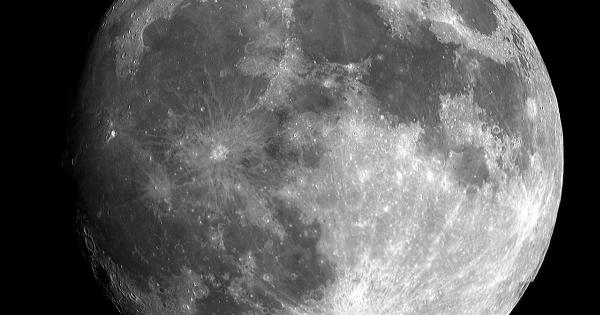For centuries, people have been fascinated by the enigmatic power of the moon. From influencing tides to affecting human behavior, the moon has been the subject of many myths and legends.
In recent years, there has been growing interest in understanding how the moon may impact sleep patterns and fertility. This analytical study aims to delve into the research and shed light on the potential links between the moon and these essential aspects of human life.
The Lunar Influence on Sleep Patterns
It is a common belief among many cultures that the moon’s phases can affect sleep quality. Some people claim to experience more restlessness and difficulty sleeping during a full moon, while others report feeling more energized during a new moon.
While anecdotal evidence is abundant, scientific research on this matter is somewhat limited.
One study published in the journal “Current Biology” in 2013 found that, on average, people took five minutes longer to fall asleep and had a decrease of 30% in deep sleep during a full moon.
The researchers suggested that this could be due to the moon’s effect on melatonin production, the hormone that regulates sleep-wake cycles. However, more research is needed to confirm these findings and understand the underlying mechanisms.
In another study published in the journal “Sleep Medicine” in 2019, researchers examined the sleep patterns of 1,265 participants over the course of two years.
The study found that participants had a decrease in sleep duration by an average of 15 minutes during a full moon and reported lower sleep quality during this lunar phase. However, the differences were relatively small, and the impact of the moon on sleep seemed to vary among individuals.
The Moon’s Potential Impact on Fertility
Just as the moon has been associated with sleep patterns, it has also been linked to human fertility. Historically, many cultures believed that fertility and lunar cycles are interconnected.
However, scientific evidence supporting this connection remains inconclusive.
A study published in the journal “Fertility and Sterility” in 2013 examined the menstrual cycles of 826 women over the course of a year.
The researchers aimed to determine whether there was any correlation between lunar phases and the length or regularity of menstrual cycles. The study concluded that there was no significant association between lunar phases and menstrual cycle characteristics, suggesting that the moon does not have a direct impact on fertility.
Another study published in “Acta Obstetricia et Gynecologica Scandinavica” in 2020 explored the relationship between the lunar cycle and the timing of ovulation among 1,765 women.
The researchers found no evidence of a correlation between lunar phases and ovulation time. However, it is important to note that these studies observe data from relatively small sample sizes, and more extensive research is warranted to establish any definitive conclusions.
Alternative Explanations & Cultural Significance
While the empirical evidence supporting the moon’s direct impact on sleep and fertility is limited, there are alternative explanations and cultural significance worth considering.
One theory is the “bright light hypothesis.” It suggests that the moon’s illumination during a full moon may disrupt sleep patterns due to the increased brightness, potentially leading to sleep deprivation and lower sleep quality.
This disruption could indirectly influence fertility by affecting hormonal regulation and ovulation. However, further research is necessary to validate this hypothesis and understand the underlying mechanisms.
Additionally, the cultural significance of the moon cannot be overlooked. It has been a symbol of femininity, fertility, and natural cycles in various cultures around the world.
The moon’s perceived influence on sleep and fertility may, to an extent, be a result of cultural beliefs and psychological factors rather than concrete scientific evidence.
Conclusion: The Moon’s Potential Influence
While the moon has captivated human imagination for centuries, the scientific evidence supporting its direct influence on sleep patterns and fertility remains limited and inconclusive.
While certain studies suggest a potential correlation, these findings are not definitive and warrant further exploration.
It is important to recognize the cultural and psychological significance attributed to the moon’s influence, as this may play a role in how individuals perceive its impact on their sleep and fertility.
Ultimately, more comprehensive research and larger sample sizes are needed to establish a clearer understanding of the moon’s potential role in these aspects of human life.





























